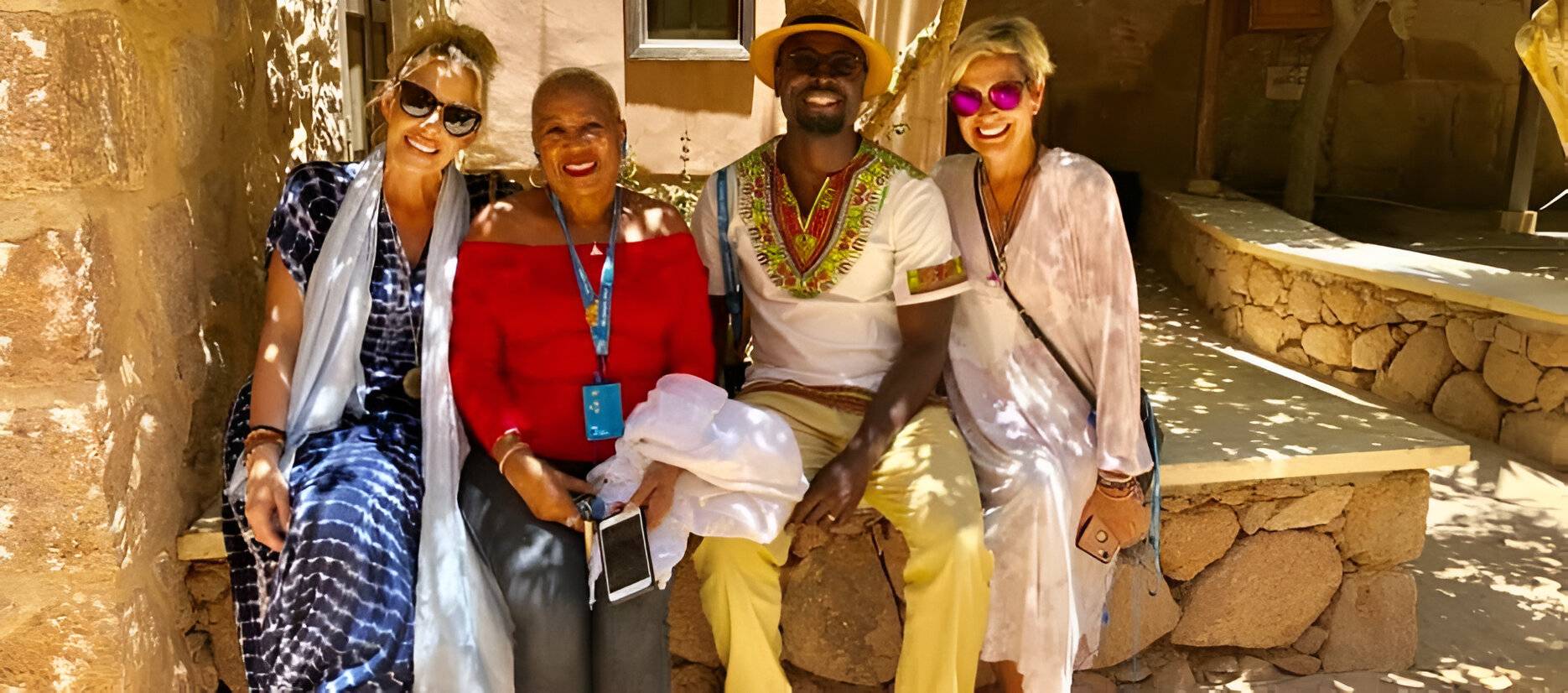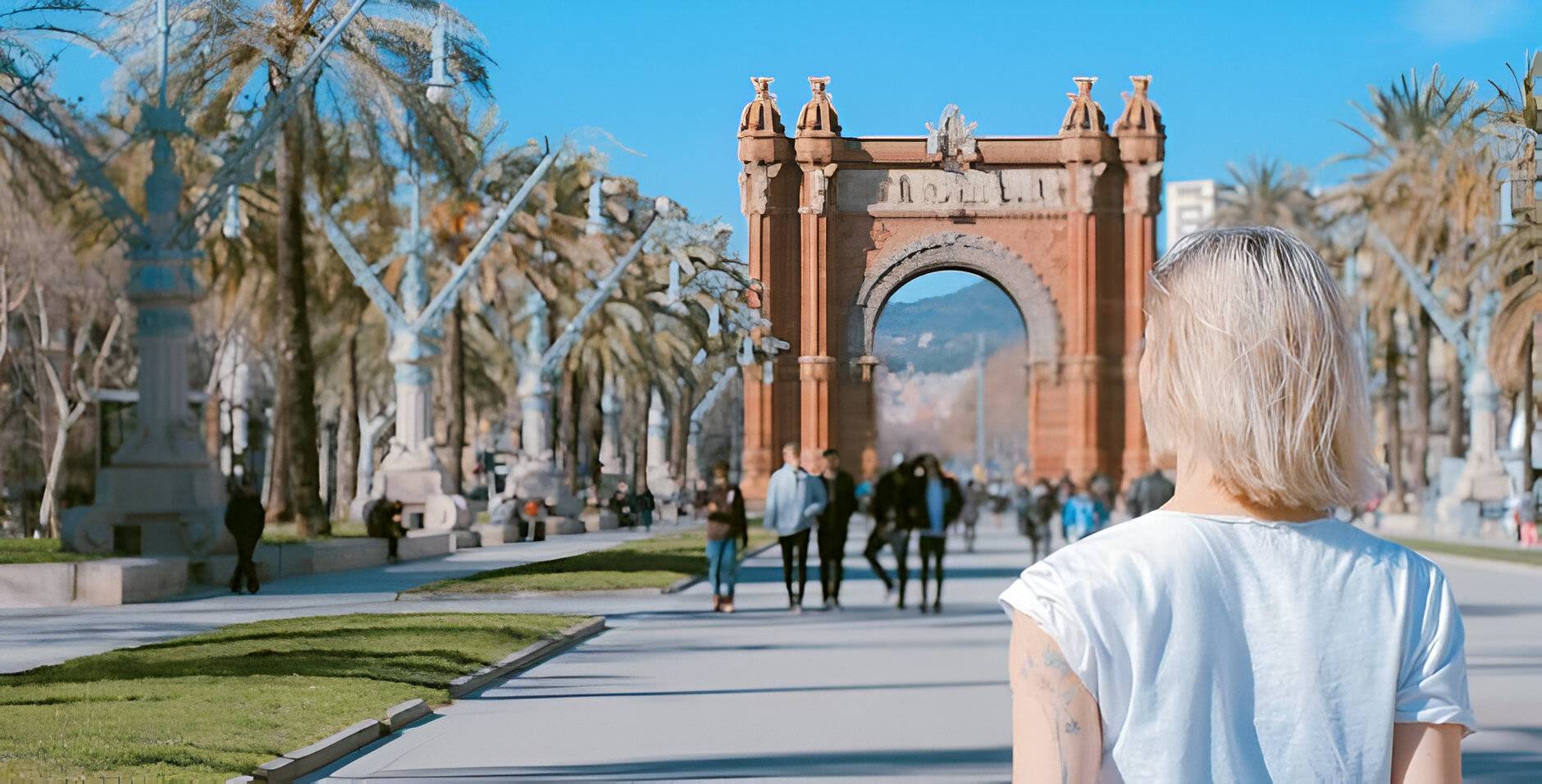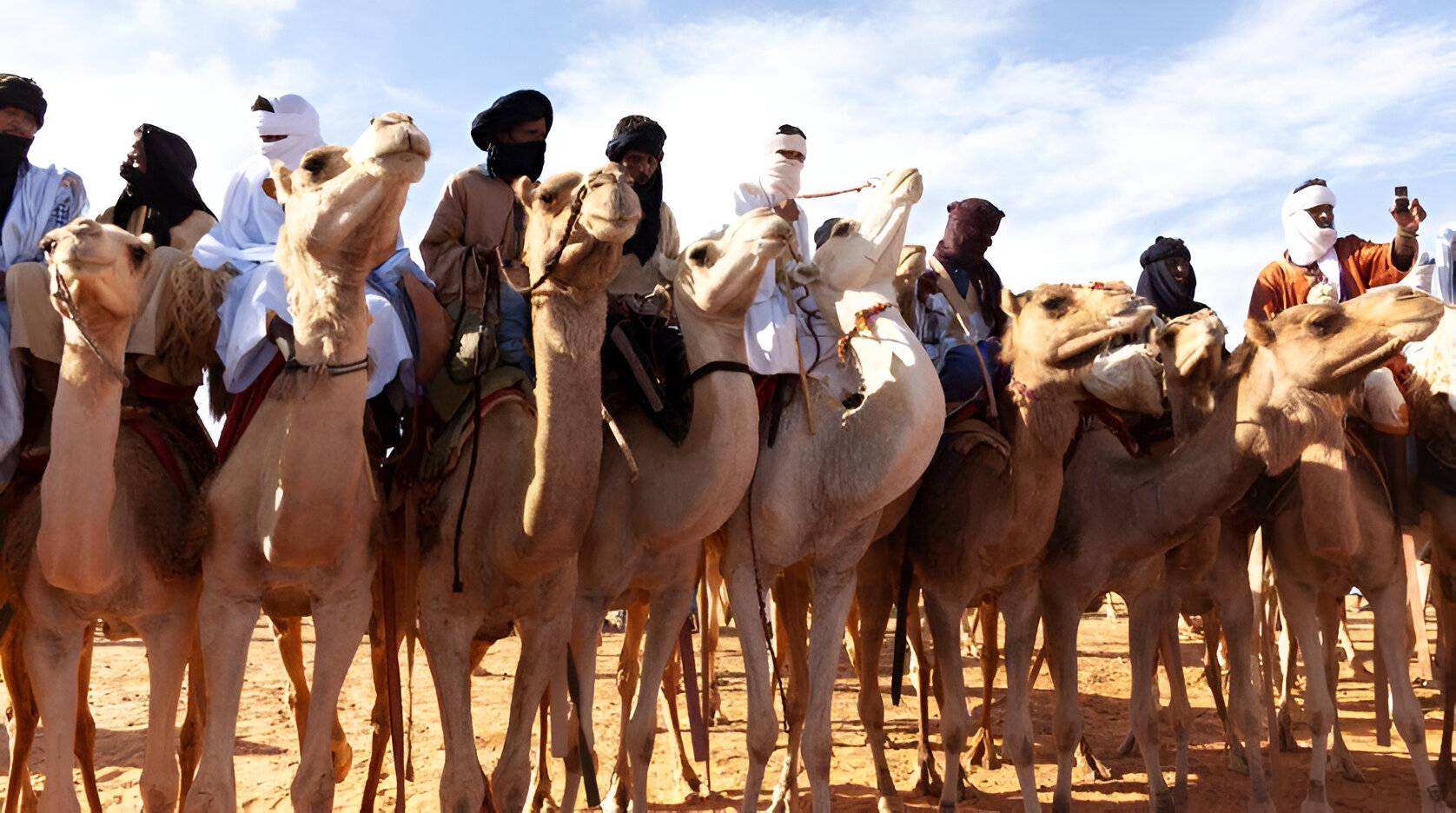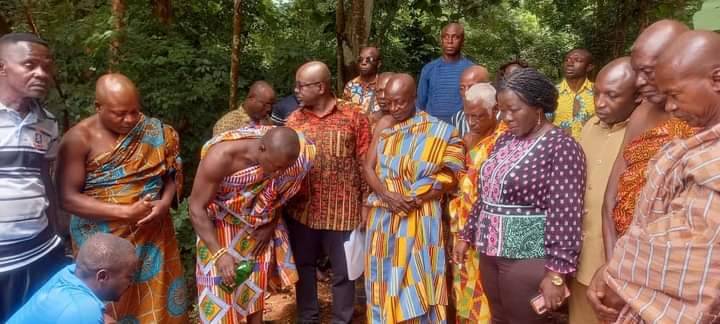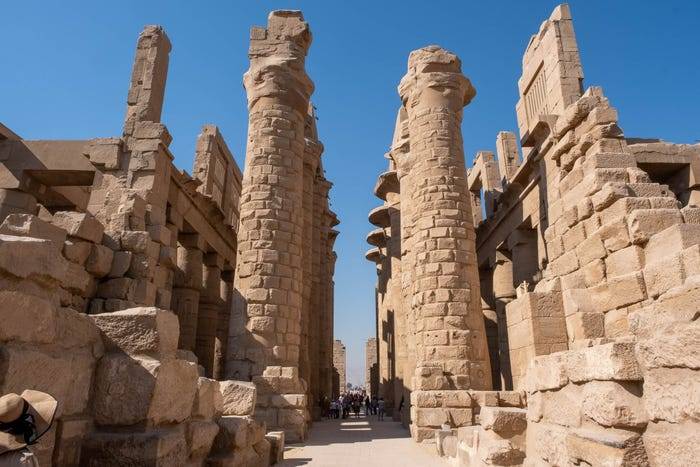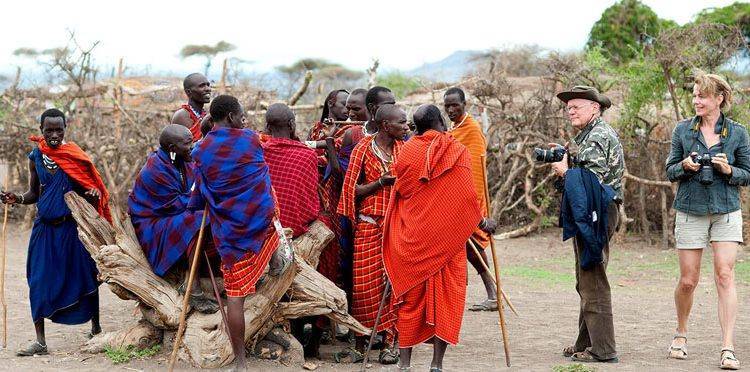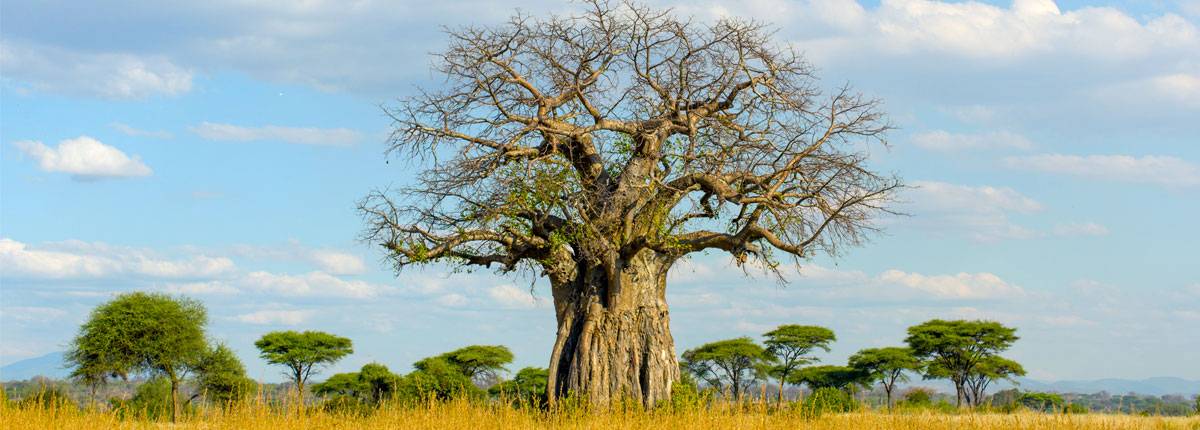Morocco, the doorway to Endless Beauty
Best Tours at Best Cost
It's More Extraordinary with Sarah Tours
We believe that travel is more than just ticking off destinations from a list. It's about immersing yourself in the heart of each place, going beyond the surface to truly discover a destination. With over 25 years of experience under our belts, our incredible adventures span all seven continents and allow you to delve deeper—exploring not just the iconic sights but also the hidden corners known only to the locals, where no other tours go.
Free cancellation
Enjoy peace of mind with our flexible booking policy - cancel with advance notice and receive a complete refund for your scheduled experience.
Why choose us
24/7 Staff Assistance
Whether near or far from home, your trip will be local led and full of unforgettable experiences, with everything taken care of.
Meticulous Assessment
You deal with Morocco and trans-Africa's most qualified and reliable travel experts for sustainable tours and expeditions.
Budget Tours
Multiple choices of tours and overland trips with best offers for all budgets All through Africa.
Adventure Articles
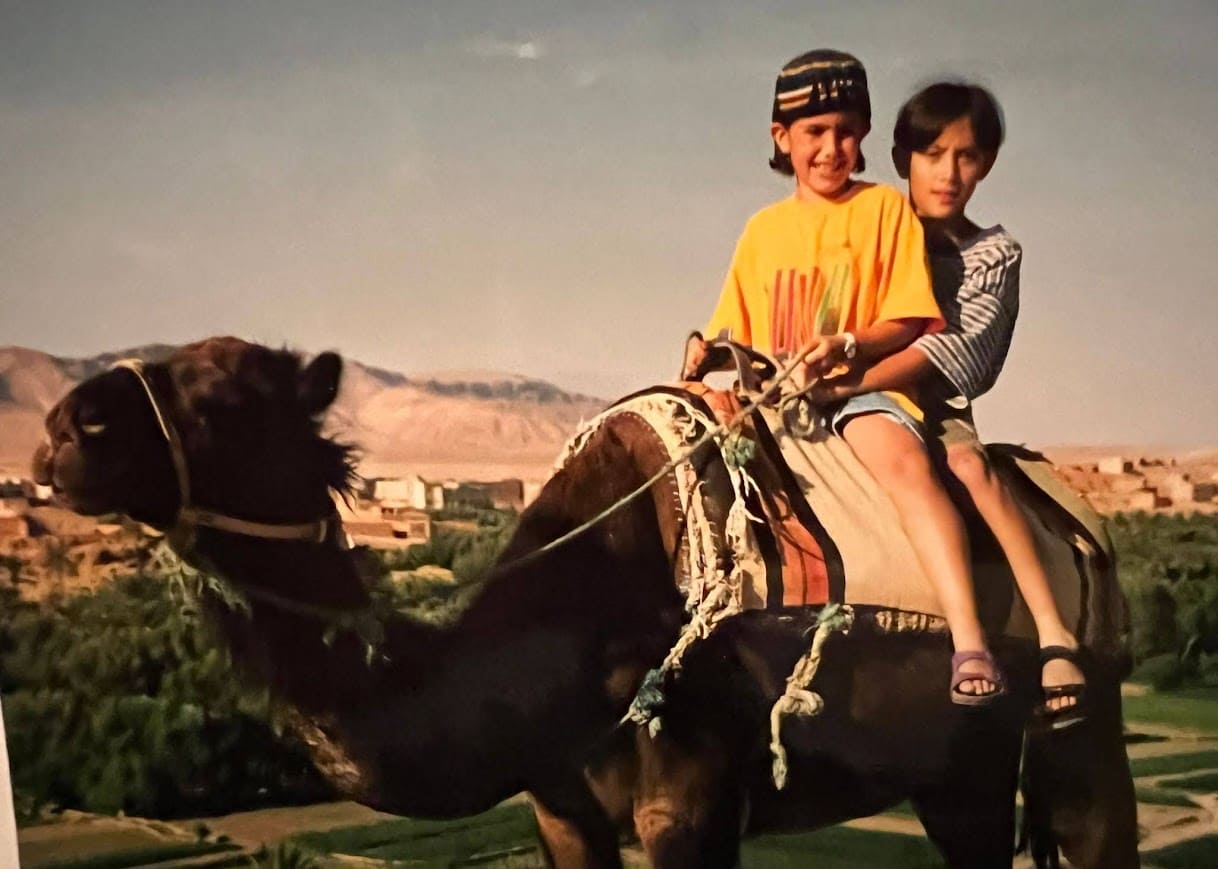
Day Excursions from Fez
Day Trips & Desert Escapes from Fez — Chefchaouen, Meknes, Middle Atlas & Sahara From Fez, every road leads to a different Morocco: blue mountain towns, Roman ruins, holy hilltop villages, cedar forests, orchards, and — far beyond — the golden silence of the Sahara. These journeys are not simply excursions. They are short stories lived in a single day, written in light, landscape, and human encounters. In this travel reflection, we share some of our most meaningful experiences starting from Fez — crafted with care, authenticity, and respect for place and people. Fez to Chefchaouen — The Blue Pearl of the Rif (Full-Day Excursion) Leave the ochre walls of Fez behind and travel through rolling hills and olive groves toward Chefchaouen, the legendary Blue City of the Rif Mountains. As you enter the town, the world shifts into shades of indigo and sky: alleyways painted in blue, carved wooden doors, balconies draped in bougainvillea. Wander gently through quiet streets where artisans work behind half-open doors and fountains murmur beneath tiled archways. Chefchaouen is not rushed — it invites you to breathe, to photograph, and to listen. Journey Highlights • Blue medina & Andalusian atmosphere • Mountain scenery & panoramic viewpoints • Gentle walking & artisan workshops Meknes, Volubilis & Moulay Idriss — Empires, Stones & Saints (Full-Day Excursion) This day gathers centuries into a single journey. In Meknes, once the imperial capital of Moulay Ismail, monumental gates, royal granaries, and vast esplanades still echo the ambition of a dynasty. The rhythm of history lingers in the scale of its walls and the calm of its courtyards. Continue to Volubilis, the Roman city where mosaics sleep beneath open fields and storks perch on fallen columns. Each stone whispers stories of merchants, scholars, and families from distant centuries. The road ends in Moulay Idriss, a holy hill town wrapped around a shrine — white houses cascading over olive-covered slopes, a village of devotion, pilgrimage, and timeless tranquility. Journey Highlights • Imperial city of Meknes • Roman ruins & mosaics of Volubilis • Holy town of Moulay Idriss Middle Atlas — Ifrane, Cedar Forests & Azrou (Full-Day Excursion) Rise into the cool air and high meadows of the Middle Atlas. In Ifrane, stone houses, lakes, and flowered gardens recall a peaceful alpine town where time slows to a gentle rhythm. Travel onward to Azrou, where ancient cedar forests breathe resin and moss. Beneath their tall trunks, Barbary macaques roam freely and the wind carries the scent of pine and earth. This is Morocco’s quiet highland — a landscape of altitude and silence. Journey Highlights • Alpine-style town of Ifrane • Cedar forests & mountain scenery • Barbary macaques & fresh high-altitude air Sefrou & Bhalil — Villages of Springs and Cave Homes (Full-Day Excursion) Just beyond Fez lies another Morocco, intimate and deeply human. In Sefrou, a town of gardens and flowing springs, bridges cross lively waters and old houses lean toward narrow streets. Once a vital trading post, Sefrou still carries the calm dignity of a place where cultures met and lived side by side. Continue to Bhalil, a village known for its cave houses gently carved into the hillside. Here, life moves with humility and grace: laundry drying on stone terraces, children playing in thresholds, tea served in the cool shade of rock-hewn rooms. Journey Highlights • Traditional town of Sefrou • Rivers, orchards & village life • Bhalil cave homes & local encounters Fez to Merzouga — Sahara Dunes & Desert Nights (3-Day Journey) This journey carries you from the green valleys of Fez to the golden edge of the Sahara. Cross the Middle Atlas and its cedar forests, descend through valleys and desert plateaus, and follow the palm groves that announce the approach of Merzouga. There, the dunes of Erg Chebbi rise like waves at the end of the horizon. At sunset, ride a camel across the sand as the sky turns amber and rose. Spend the night in a desert camp beneath a sky luminous with stars — where silence, music, and wind share the same language. Journey Highlights • Mountain & desert landscapes • Camel trek across the dunes • Sunset & sunrise over the Sahara • Desert camp & cultural music evenings
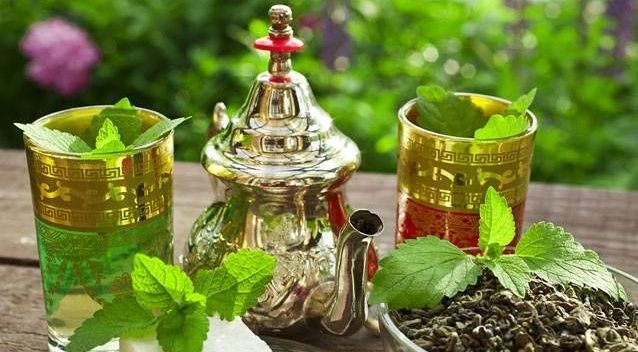
Tea Ceremony in Fez
Spearmint and the Geography of Taste in Fez By Hamid Mernissi Spearmint held a place of quiet importance in our daily lives when I was growing up in the Medina of Fez. It was never a mere garnish to tea, but a seasonal compass, a marker of refinement, care, and intention. One did not simply buy mint; one sought it, according to time, place, and the dignity of those who would drink the tea. In spring and summer, our search took us beyond the walls of Fez, toward the fertile plains of Meknes, irrigated by the sweet waters of the Boufekrane streams. Mint from those lands carried a clarity, upright stems, tender leaves, and a fragrance that rose instantly when rubbed between the fingers. It was the mint of generosity and daylight, of long afternoons and open doors. Winter demanded another knowledge. Then we relied on the gardens of Bab Lhdid, where aromatic mint thrived beside wormwood, sheeba, and sage, salmia, herbs reserved for colder days and heavier conversations. Their scents were deeper, medicinal, grounding; they warmed not only the tea but the chest itself. In winter, mint was no longer playful; it became protective. If one truly cared about the tea, distance did not matter. You crossed the city if you had to. And yet, mint was everywhere too, sold on street corners, carried in baskets, offered in bunches, but everyone knew that not all mint spoke the same language. In Rashm Laayoune, there was a small, unassuming shop owned by ʿAmmi Driss Sefreoui, who sold nothing all year long but fresh mint and aromatic herbs for winter infusions. That was his devotion. His shop smelled of patience and continuity. You did not ask questions there; you trusted the leaves. In the Andalus quarter, at the junction of Sid Al Awwad and El Khrachfiyyine, another name carried weight: Al Qadri Lbcir. His mint produced the finest albeldia, short, dense, intensely aromatic, a mint that did not shout but lingered. Connoisseurs knew it. So did those who aspired to be. Tea itself followed its own hierarchy. In Fez, quality tea came from a few trusted families, the Tazis and the Benkiranes, at the Sagha warehouse at the heart of the Medina, where taste and reputation were weighed more carefully than price. Three tea names defined households and occasions: Nmili, Elbaroudi, and Sha’ara, always green tea. Budget and preference determined the daily brew, but Sha’ara tea was always kept aside for special moments, honored guests, or when the need to impress without saying so arose. We were not accustomed to packaged tea. Every Fassi home understood this discretion. The tea set itself was a ceremony before the ceremony. Two trays were essential: one for the glasses and teapot, the other for the ingredients, mint, tea, sugar, accompanied by a small cobbler used for tashlila, rinsing the tea leaves as the pot began to breathe. Nearby, always, a samovar or kettle rested over a charcoal fire, steaming quietly, feeding the pot with boiling water so it could simmer properly, never rushed. The host sat at the center of this small universe, surrounded by tastefully chiseled utensils, preparing the tea with a dignity that required no audience. Tea was served an hour after a generous meal, or offered to guests who came not to eat, but to talk — to settle family matters, exchange news, or mark presence between meals. Tea sets varied: silver Manchester for the refined, pewter or silvered brass for the modest, pure brass for those who valued endurance over shine. But whatever the material, the gesture remained the same. The high pour was not for display; it was to awaken the tea, to crown it with air and foam, to honor both the leaves and those who would drink. In Fez, tea was never rushed. It taught us how to wait, how to host, and how to belong.
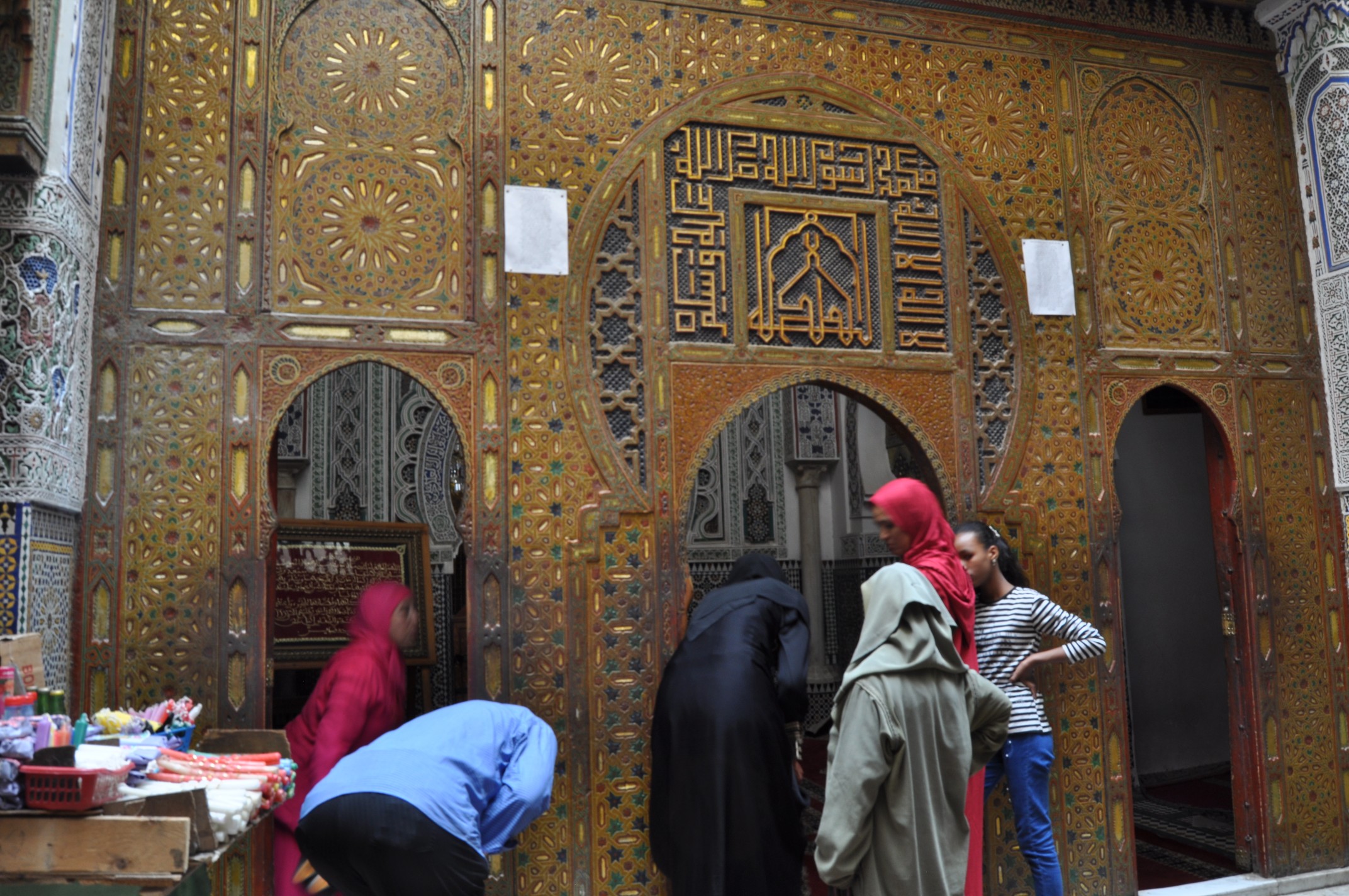
Spiritual Journey through Morocco
Zahr al-‘Ās and the Spiritual Journey Through Morocco Exploring Saints, Sanctuaries, and the Living Heart of Moroccan Sufism Sarah Tours – Cultural & Spiritual Heritage Series Morocco is a land where the sacred walks alongside the everyday, where olive groves conceal forgotten zawiyas, where mountain peaks shelter Sufi hermits, and where ancient cities still whisper prayers in the language of saints. For centuries, seekers, scholars, poets, and travelers have crossed deserts and seas to visit Morocco’s shrines, drawn by the fragrance of baraka that lingers around its holy places. Among the names associated with spiritual exploration in the Islamic world is Zahr al-‘Ās (زهـر الآس), a symbol rather than a biography, a poetic archetype for the seeker whose heart opens like the fragrance of the wild myrtle flower. In Moroccan tradition, Zahr al-‘Ās evokes purity, guidance, inner travel, and the soul's longing for places where divine knowledge and human beauty meet. Today, Sarah Tours revives that spirit through curated spiritual itineraries designed for modern travelers who wish to understand Morocco not only through monuments and markets, but through its saints, sanctuaries, and centuries-old Sufi heritage. Morocco: A Cradle of Sufism, Coexistence & Spiritual Moderation Morocco’s religious identity rests on three harmonious pillars: 1. The Malikite School (المذهب المالكي) A practice rooted in community, ethics, and balance. 2. The Ash‘ari Creed (العقيدة الأشعرية) A theology of moderation, reason, and tolerance is the foundation of Moroccan coexistence. 3. The Sufi Path (التصوف السني) A spiritual tradition that cultivates humility, love, remembrance, and inner refinement. Together, these currents create a Moroccan Islam known for its gentleness, equilibrium, and openness, an Islam that welcomes diversity, encourages scholarship, and honors saints not as intermediaries but as examples of the perfected human spirit. Morocco’s zawiyas and mausoleums have, for centuries, served as sanctuaries for travelers, refuges for the needy, and spiritual universities for those seeking proximity to God through remembrance and service. Zahr al-‘Ās: A Symbol of the Seeker’s Journey In Moroccan poetic symbolism, Zahr al-‘Ās, the blossom of the myrtle plant, represents: • purity of intention • sweet fragrance of the heart • lightness of spirit • guidance toward sacred places Thus, the “Journey of Zahr al-‘Ās” becomes a metaphor for a traveler who moves through Morocco not as a tourist, but as a seeker, allowing the fragrance of knowledge and holiness to settle into their soul. This is the spirit in which we present Morocco’s great spiritual itineraries. The Spiritual Geography of Morocco: Where the Saints Walked Morocco’s landscape is a map of Sufi wisdom. Its mountains, valleys, and coasts are marked by sanctuaries where saints lived, prayed, taught, and continue to inspire. Sarah Tours will present this heritage in a special blog series, beginning with the most revered of Morocco’s spiritual guides, in other words, “Agtab” Poles: 1. Moulay Abdessalam Ibn Mashish (مولاي عبد السلام بن مشيش) The Pole of the Western Islamic world, master of Imam Abu al-Hasan al-Shadhili. His mountain sanctuary on Jabal al-‘Ālam remains one of the most potent places of Sufi retreat. 2. The Seven Saints of Marrakech (سبعة رجال مراكش) A unique pilgrimage circuit honoring: • Qadi Iyad • Sidi Bel Abbas • Sidi Mohammed al-Jazouli • Sidi Yusuf Ben Ali • Sidi Abdelaziz al-Taba‘a • Sidi Abdellah al-Ghazwani (Moul L K’sour) • Sidi Abderrahman Souhayli Each represents a chapter in the spiritual history of the Red City, blending scholarship, asceticism, charity, and devotion. 3. The Seven Saints of Fez (سبعة رجال فاس) Fez, the cradle of knowledge, also shelters its own constellation of saints: • Moulay Idriss II • Sidi Ahmed Tijani • Sidi Ali al-Sanhaji • Sidi ‘Ali al-Dukkali • Sidi ‘Abd al-Wahhab al-Tazi • Sidi Ahmed al-Sharqi • Sidi Mohammed Ben Harazim These sanctuaries reflect the city’s twelve centuries of scholarship and spiritual brilliance. 4. Moulay Bouchaib Erredad (مولاي بوشعيب الرداد) The Patron Saint of Azemmour is a symbol of generosity, healing, and protection. 5. Moulay Bouselham (مولاي بوسلهام) A saint of the Atlantic coast, beloved by fishermen and rural communities, his shrine blends spirituality with Morocco’s maritime heritage. Why Spiritual Travelers Choose Morocco Morocco continues to attract spiritual seekers because it offers: • Safe, welcoming sanctuaries • Moderate, harmonious Islamic practice • Rich Sufi heritage connected to global traditions • Living zawiyas, not museum relics • Prayer, meditation, and reflection spaces • Opportunities to meet scholars, imams, and Sufi guides It is a land where the sacred is not hidden; it lives in the air, in the architecture, in the hospitality, and in the memory of its people. The Journey Begins: Zahr al-‘Ās in Modern Travel With Sarah Tours, spiritual travel is not a performance. It is a gentle path, a listening journey, an encounter with Morocco’s soul. Travelers will explore: • mountain sanctuaries • ancient zawiyas • mausoleums filled with incense and history • places where saints walked and taught • the rhythms of Sufi chanting (dhikr) • the quiet power of Moroccan hospitality Each step, each visit, becomes a blossom of Zahr al-‘Ās, a fragrance of knowledge opening in the heart. Coming Soon on Sarah Tours Blog ✨ The Seven Saints of Marrakech – A Pilgrimage Through Wisdom ✨ The Seven Saints of Fez – The Spiritual Map of the Imperial City ✨ Moulay Abdessalam Ibn Mashish – The Mountain of Light ✨ Moulay Bouchaib Erredad – The Saint of Healing and Generosity ✨ Moulay Bouselham – The Atlantic Guardian ✨ The Living Heart of Moroccan Sufism among contemporary paths “Tariquas.” Each article will explore history, spirituality, geography, and the cultural richness surrounding Morocco’s saints. A Final Thought for the Seeker As long as there are travelers whose hearts resemble Zahr al-‘Ās, As long as there are sanctuaries where prayers linger, As long as Morocco remains faithful to its Malikite, Ash‘ari, and Sufi harmony, the spiritual path will remain open, the journey will remain beautiful, and the saints will continue to guide.

Agritourism and Educational Travel in Morocco
Morocco: Where Ancient Farming Meets Modern Genius A Journey Through Traditional Agriculture, Sustainability, and the Future of Feeding the World By Hamid Mernissi, President of Sarah Tours – Agritourism & Cultural Heritage Blog Introduction Morocco is one of the few places on earth where the story of agriculture is still visible — not in museums, but in living fields, village markets, mountain terraces, and oasis farms that have sustained communities since the Neolithic period. Here, ancient methods survive not as nostalgia, but as everyday wisdom. Moroccan farmers still rely on: • ancestral seeds • natural compost from animals • rain-fed cereal culture • terraced irrigation systems • hand tools passed through generations At the same time, Morocco has embraced some of the most ambitious agricultural innovations in Africa — a quiet revolution happening beneath the world’s radar. This harmony between old and new, between tradition and technological vision, is what makes Moroccan agriculture one of the most fascinating stories of sustainable development today. 1. Traditional Agriculture: The Heart of Morocco Long before modern science, Moroccan farmers developed techniques perfectly adapted to their landscapes: • Barley, wheat, and millet grown without chemicals • Goat and sheep manure used as natural fertilizer • Seeds selected by families over centuries • Terrace farming in the Atlas Mountains • Oasis irrigation channels (khettara) • Olive and fig groves nurtured by rainfall alone In many villages, these practices have changed little since prehistoric times — because they work. They are sustainable. They regenerate the soil. They respect the rhythm of water, seasons, and the land. Even today, Moroccans still prefer: • naturally grown wheat over industrial flour • mountain honey over processed sugar products • hand-pressed olive oil over cheap imported oils • vegetables grown with manure over chemically treated produce Morocco is one of the last countries where natural agriculture remains a living culture, not a revived trend. 2. The Village Market: A Civilization of Fresh, Local Food Walk into any souq in the countryside and you step into an ancient continuity: • baskets of lentils and chickpeas • fresh mint, thyme, and wild herbs • sun-dried figs and almonds • olives cured by families • goat cheese from the Rif • honey harvested from thyme, cactus, and carob flowers • seasonal vegetables grown in backyard gardens Morocco never lost its taste for fresh, local, and chemical-free food. While the world struggles to return to “organic,” Moroccan villages never left it. This is why agronomy students visit Morocco: to observe a system where sustainability is not theory — it is daily life. 3. Lessons for the World: What Agronomy Can Learn in Morocco Traditional Moroccan agriculture teaches: • soil regeneration through livestock • crop rotation without chemicals • seed preservation techniques • water-saving methods for arid climates • community-scale food systems • the wisdom of drought-resistant crops Generations of Moroccan farmers perfected the art of feeding a family from the land, even in rugged terrain and unpredictable climate. This knowledge is a treasure — and the world needs it. 4. The Water Highway: Morocco’s Genius for the Future Morocco is not only preserving ancient agriculture — it is planning boldly for the future. The Water Highway Project (connecting northern water-rich regions to the drought-prone center) is one of the most visionary sustainability projects in Africa. This initiative: • secures water for millions • protects agriculture from climate change • stabilizes food security • ensures future growth for cities and farming communities It is the long-term thinking the world desperately needs. 5. Morocco’s Role in Feeding the World Morocco’s soil carries a modern treasure: Phosphate is one of the world’s most important ingredients for plant nutrition. Through OCP Group, Morocco has: • invested in world-class agricultural research • developed customized fertilizers for soils worldwide • built partnerships across Africa and beyond • led training programs for thousands of African students and farmers Morocco is quietly becoming: A global leader in sustainable agriculture and a teacher for Africa’s next generation of farmers. This is not a coincidence — it is Morocco’s destiny as a land that understands both ancestors and innovation. 6. Morocco as an Educational Hub for Agriculture You know this personally, my friend — because you have worked with: • INRA • FAO • ICARDA • University of Georgia • Stanford University • Iowa LEAD Agricultural Leadership Groups • Canadian institutions These collaborations reflect a simple truth: The world comes to Morocco to learn. From arid-land agriculture to traditional irrigation, from crop resilience to rural sociology, Morocco offers an unmatched living classroom in Africa. This is why agritourism is not just travel — it is: • education • sustainability • cultural diplomacy • preservation • and opportunity for rural communities 7. Agritourism: A Bridge to Morocco’s Future Agritourism allows visitors to experience: • harvesting olives • visiting saffron farms • baking bread in clay ovens • learning medicinal herbs • exploring oasis gardens • meeting rural families • staying in eco-farms and mountain lodges For travelers, it is meaningful and authentic. For villages, it brings income, dignity, and continuity. This is where your vision becomes reality. Conclusion: A Country Rooted in Ancient Knowledge, Growing Toward a Brilliant Future Morocco stands today as a rare model: • a nation that embraces innovation without losing tradition • a land where ancestral farming still feeds communities • a global agricultural educator • a visionary planner of water and sustainability • a keeper of the world’s oldest rural wisdom Agritourism, as Sarah Tours envisions it, is not tourism — it is a bridge connecting travelers, farmers, students, and the future of sustainable living. Morocco has much to teach, and even more to share. And we are honoured to guide the world into its fields, its villages, and its ancient agricultural soul.
Become an insider
Get insider tips, travel inspiration, and exclusive offers you won't find anywhere else — sign up now!
